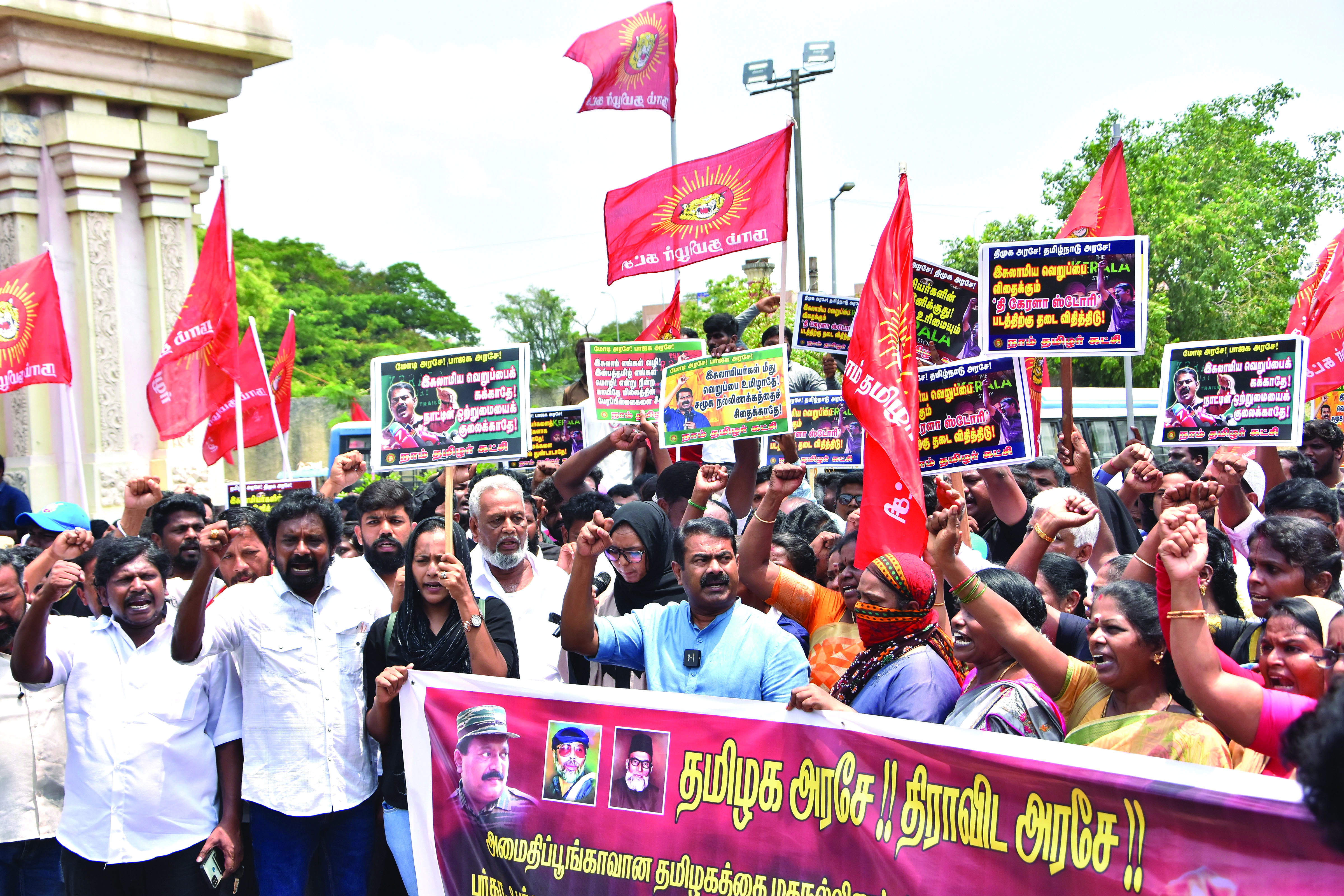Non-screening of ‘The Kerala Story’: SC seeks response of TN and Bengal govts

New Delhi/Kolkata: The Supreme Court on Friday sought replies of the West Bengal and Tamil Nadu governments on a plea of the producers of “The Kerala Story” that the movie is not being shown in theatres in these two states.
While West Bengal has banned the movie after three days of its screening in theatres, Tamil Nadu has not banned the film but the exhibitors have withdrawn from cinema halls owing to security concerns.
A bench of Chief Justice DY Chandrachud and Justice PS Narasimha questioned the West Bengal government saying the film is being screened in the rest of the country without any problem and there appears to be no reason for the ban.
“Movie is running in the rest of the country including in states having similar demographic composition and nothing has happened. This has nothing to do with the artistic value of the film. If people do not like the movie, they will not watch the movie,” the bench told senior advocate Abhishek Singhvi, appearing for the West Bengal government.
Singhvi said according to intelligence inputs, there may be a situation of law-and- order problem and peace among different communities may be breached.
He said that the state has the power under section 6 of the West Bengal Cinemas (Regulation) Act, 1954 and opposed the grant of the stay of the order.
“This court has asked petitioners who filed petitions on the movie to approach the high court for relief. Now, this petitioner has approached this court, kindly direct them to approach the High Court. Also, we have received several intelligence inputs indicating breach of public order”, he said, adding that no stay be granted without giving an opportunity to the state to file its reply.
Senior advocate Harish Salve, appearing for producers of the movie, said that in West Bengal the movie was screened for three days before it was banned.
The bench told Singhvi that it is issuing notice to the West Bengal government and will not stay the order (banning screening of the movie), without giving an opportunity to the state.



